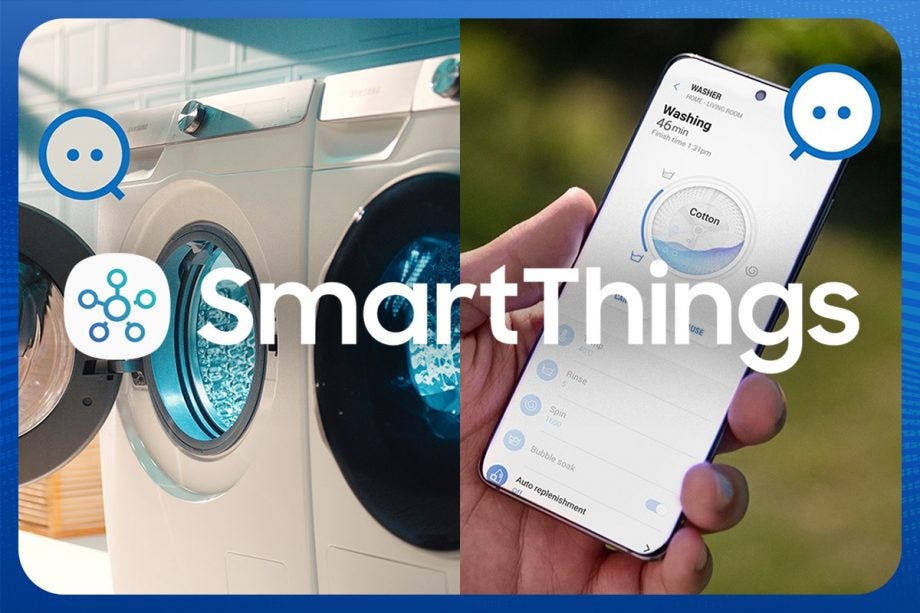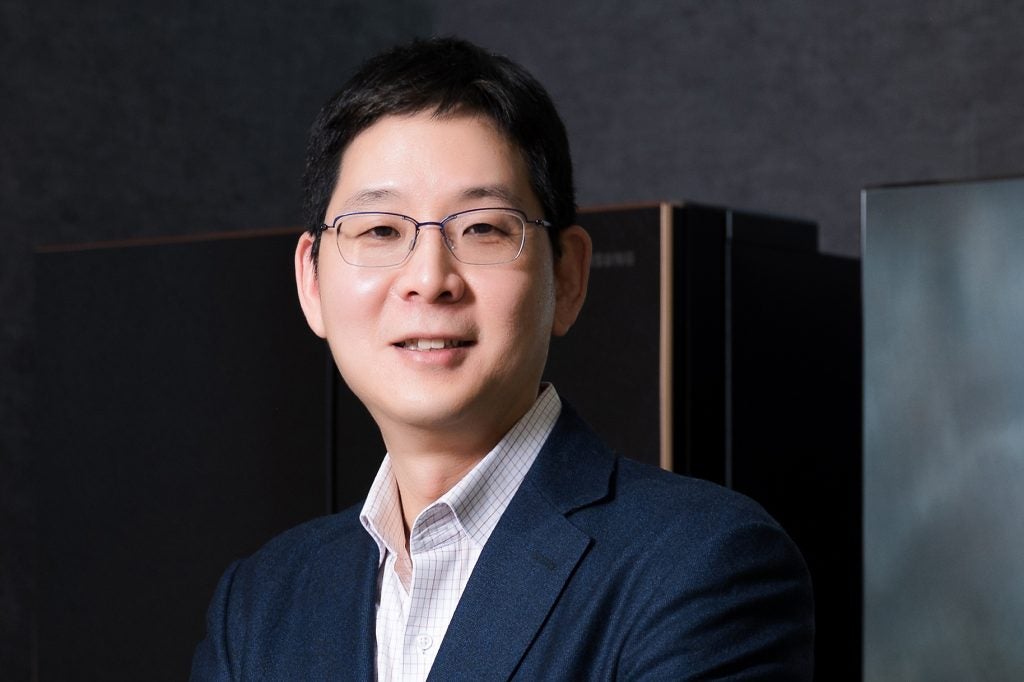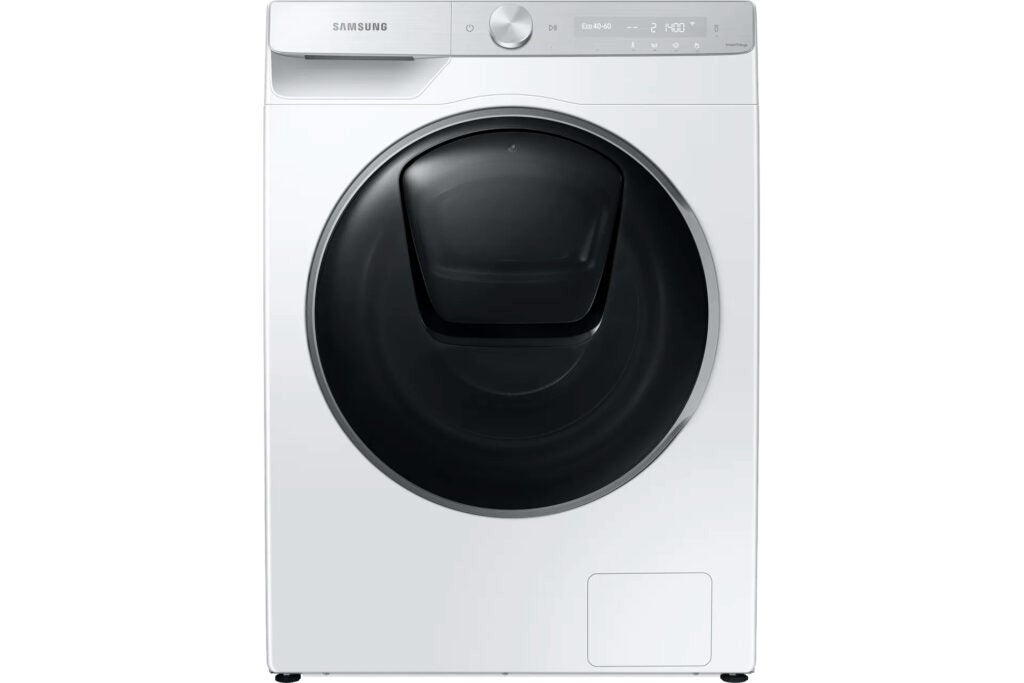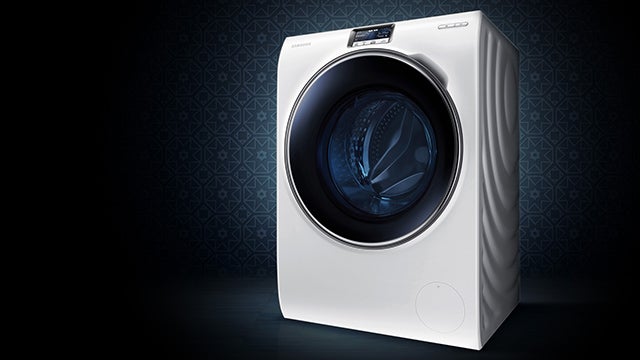Here’s how Samsung plans to make our homes smarter

How we view and use home appliances has shifted massively in recent years. With the launch of products, such as the Samsung Bespoke Fridge, we’ve seen manufacturers moving away from white goods’ traditionally functional aesthetic, to a new era that lets customers customise and choose how they want their kit to look. That’s only the start of the journey, as there’s a growing demand and need for smarter appliances that work together.
To find out more, I spoke to Chanwoo Park, vice president, head of IoT Business at Samsung (pictured below) to find out how the company is planning to make our lives smarter.

Kicking off he told us, like most aspects of our lives, the Coronavirus pandemic, which has changed the way that most of us live and work, forcing us to spend more time at home, has changed the company’s focus. Specifically, it’s a period that Samsung says has accelerated the demand for internet-connected appliances and smart services.
“Consumers were already looking for and using smart home products prior to the pandemic and their interest has grown substantially since,” says Park. “Social distancing and remote work accelerated the acceptance and demand for smart appliances. With people spending more time at home, they’ve come to expect their home and the devices in it to do more with greater efficiency and to have flexible features that can be personalised to the individual’s needs.”
SmartThings
Samsung’s approach to smart technology is built around its SmartThings platform. Although this largely started life as a more techy smart automation platform for the likes of sensors and smart locks, it has expanded so that it now includes appliance control and even smart recommendation services.
As Park explains, “Our SmartThings platform includes a culinary service that offers recipe recommendations, online grocery shopping, and meal planning. The key difference is that the service works in a personalised way so that all elements are tailored to the individual user’s preference and learns as the user continues to use it.”
Samsung has also worked hard to make SmartThings something that’s easier to get to grips with, providing multiple ways to interact with the platform, so that it doesn’t just apply to the more techy people. For example, SmartThings is at the heart of the Family Hub, which is available on the company’s higher-end refrigeration products.
“Family Hub does a lot more than the average fridge by providing food management, entertainment and smart functionality – all in one package,” explains Park. “Its built-in display works seamlessly with our SmartThings Cooking IoT service to provide personalised recipe recommendations, weekly Meal Plans based on food preferences, fridge inventory, and automatic cooking appliance settings based on the selected recipe.”
Other products that I’ve tested can work automatically. Buy a Samsung WW9800T washing machine, for example, and it can transmit the best drying programme to a compatible tumble dryer, such as the Samsung Series 9 DV90T8240SX.

Samsung can do similar things in the kitchen.
“On a Family Hub, SmartThings Cooking can link with your fridge’s ViewInside cameras. Using Whisk’s AI food recognition capabilities [the AI platform that powers the recipe recommendation service], the cameras can automatically scan the products inside your fridge and identify them. You can view this on your Family Hub screen.
“An automatic Meal Planner recommends meals for the week and generates shopping lists for missing ingredients. If you like, you can then connect directly to online grocery retailers for checkout straight from your smartphone.
“When you’re ready to start cooking, SmartThings Cooking becomes your sous-chef as your Samsung appliances communicate directly with each other. SmartThings Cooking will send recipe data straight to your smart range or oven to make sure that your settings are entered precisely, giving you one less thing to worry about,” says Park.
SmartThings Cooking will send recipe data straight to your smart range or oven to make sure that your settings are entered precisely, giving you one less thing to worry about.
Chanwoo Park, vice president, head of IoT Business at Samsung
Beyond the kitchen
Samsung plans to make all of our homes smarter, too, with devices and services that stretch beyond the kitchen.
“Our smart solutions go beyond the kitchen to include services such as our SmartThings pet care platform that offers remote monitoring of your furry family member when you are away; SmartThings Clothing Care which is a smart wardrobe management system that offers clothing care instructions; and SmartThings Air which is an intuitive air quality monitoring system that informs and operates the air care devices in your home,” says Park.
Interoperability
As good as SmartThings is, one of the big issues with delivering fully connected homes has been a lack of interoperability between different manufacturers. More open standards and devices that can talk to each other is something our homes need and something that Samsung believes in.
“We believe that smart connectivity is more than just the sum of the functions from our devices, we want to help consumers do more thanks to trusted partners around the home and we are expanding our partnerships to make this a reality,” says Park.
I should also point out that Matter, the new smart home protocol for interoperability, has joined the SmartThings Ecosystem. It’s early days yet but should allow SmartThings to control a wider range of devices.
The future of connected devices
For the future, Samsung understands the need to adapt its products to its users’ needs.
“We understand that home appliances don’t necessarily become smart just by being plugged into the internet. So, more and more devices are making use of advanced technologies, such as machine learning, computer vision and natural language processing, to provide a higher level of service and personalisation,” says Park.
“Another increase in demand we’re seeing is for household robots. Domestic robots, such as robot vacuums, support people to get their chores done faster so they have more time to spend with family and friends, or do the things they value most.”
Ultimately, with the likes of Matter, a wider range of smart devices, AI and built-in automation, we seem to be moving in the right direction, going from complicated systems that require programming to a world where devices work seamlessly with each other.





